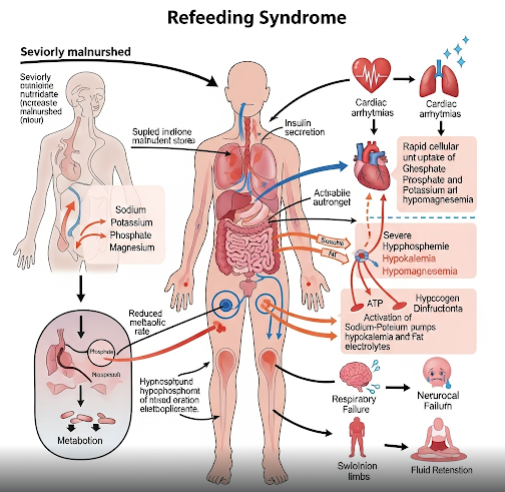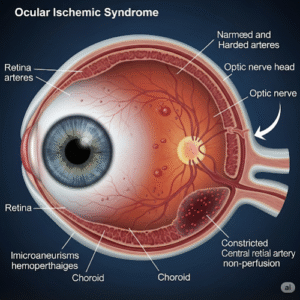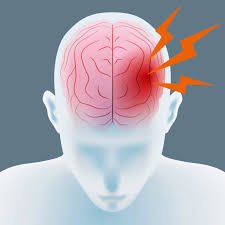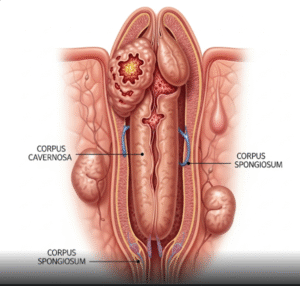Overview
Refeeding syndrome is a potentially life-threatening condition that occurs when nutrition is reintroduced too quickly after a period of starvation or severe malnutrition. It involves metabolic and electrolyte imbalances that can lead to serious complications. In Korea, healthcare professionals in hospitals and clinics are trained to recognize and manage refeeding syndrome promptly to prevent adverse outcomes.
What is Refeeding Syndrome?
Refeeding syndrome results from rapid reintroduction of carbohydrates and other nutrients after prolonged fasting or malnutrition, causing shifts in fluids and electrolytes such as phosphate, potassium, and magnesium. This sudden change can disrupt cardiac, neurological, and respiratory functions.
Symptoms
- Weakness and fatigue
- Confusion or seizures
- Irregular heartbeat (arrhythmias)
- Muscle cramps or spasms
- Difficulty breathing
- Edema (fluid retention)
Causes
- Prolonged fasting or starvation
- Severe malnutrition from conditions such as anorexia nervosa, chronic illness, or surgery
- Rapid initiation of feeding, especially high carbohydrate intake
- Inadequate monitoring during nutritional rehabilitation
Risk Factors
- Chronic alcoholism
- Cancer and chemotherapy
- Bariatric surgery patients
- Elderly and debilitated patients
- Severe gastrointestinal diseases causing malabsorption
Complications
- Cardiac failure
- Respiratory failure
- Neurological damage including seizures and coma
- Death if untreated
Prevention
- Slow, gradual reintroduction of nutrition
- Careful monitoring of electrolytes and fluid balance
- Supplementation of phosphate, potassium, magnesium as needed
- Multidisciplinary approach involving nutritionists and physicians
Treatment Options in Korea
Diagnosis
Diagnosis is clinical, based on patient history of malnutrition and recent feeding, along with laboratory tests showing electrolyte imbalances.
Medical Treatments
- Controlled nutritional support with gradual calorie increase
- Electrolyte replacement therapy
- Close monitoring of vital signs and biochemical parameters
Surgical or Advanced Therapies
- Not typically surgical but may require intensive care support in severe cases
Rehabilitation and Support
- Nutritional counseling and education
- Psychological support for underlying causes such as eating disorders
- Long-term follow-up to ensure stable nutritional status













